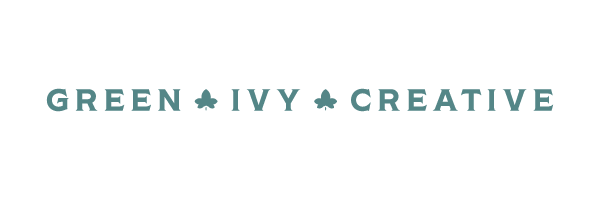What is E-E-A-T?
E-E-A-T stands for “experience,” “expertise,” “authoritativeness,” and “trustworthiness” when it comes to a website’s content. These guidelines from Google aren’t direct ranking factors, but they are guidelines that influence ranking [insert confused side-eye here]. It’s not that wild, though. I promise. When we think about this set of rules, it’s easier when we break them down into human-speak.
Experience
It would be lovely if all content published online was true and life-changing if the only people sharing information on a topic had real, first-hand experience with it. Sadly, that’ll never happen, but Google’s aim is to reward folks writing content with the experience to back it up. There are several ways writers can prove their experience in the topic they’re writing about, including but not limited to:
- listing a bio on your website;
- adding personal stories related to your experience as it relates to the subject matter; and
- having a regularly updated blog sharing your personal experience and expertise in a subject
Expertise
Speaking of the blog, another important piece to prove is your expertise. While there’s a lot of overlap between the expertise and experience portions of E-E-A-T, we can think of expertise as connecting your unique experience to how well-versed you are in your field. Be specific about how your experience relates to the knowledge you’re sharing. Highlight your credentials and awards to let folks know you’ve done the work and are recognized in your field.
Authoritativeness
Once you’ve proven your experience and expertise, the next step is to show your firm grasp on the topic you’re writing about. Take it a few steps further by using clear language and citing your sources. Showing you have authority on a subject you’re writing about is an intricate process so I’ll break it down into a few key categories.
Content Architecture
When a subject you’re writing about could easily become overly complicated, pay attention to the overall structure. Putting together a solid strategy around a topic means building content architecture that makes sense. The more detailed a topic is, the more that architecture matters. Know where you’re starting, keep headings in mind, and plan the main points you want to make even before starting to write about them.
Topical Authority
If you know the topic you’re writing about inside and out, you’ll be able to clearly explain its most complex details to someone interested in learning more. This is all about using references thoughtfully and creating high-quality content that’s verifiable, useful to the reader, and current. Going further and explaining the strategy or real-world use and potential future implications behind the subject can help, too.
Backlinks from Other Authorities
When websites Google views as having authority provide links back to your site, it can help boost your authoritativeness. This one’s tougher because there are so many ways of doing it but it’s a good goal to keep in mind. You can attract backlinks by writing quality content, being consistent, and regularly providing that content on your platform. You can also reach out to those other companies and see if they’d be willing to partner with you, but again, you’d better have content worth sharing ready to go.
Show Google Your Background
This is where the lines of experience, expertise, and authoritativeness can get blurred. One piece of showing your authority is about building your brand. This can happen on social media platforms like LinkedIn (so get that in order) and even otherwise “fun” ones like Instagram and Facebook. A good start is to Google your name and see what comes up. If you find your LinkedIn is right at the top and it isn’t showcasing your relevant work history, it’s time to freshen it up.
P.S. By “relevant history,” I mean the work history related to the field you’re in currently. For example, I was a server at a restaurant and a cashier at a garden center in my 20s as side gigs but those jobs don’t need to live on my public profile because they’re not relevant to what I’m doing now.
Trustworthiness
The element of trust is massively important. It combines the pieces of experience, expertise, and authoritativeness, then takes it further Having a secure site and payment systems (when applicable), real customer reviews (not just on your site), factual information, and other honest elements of your site that would prove it’s a safe place for users to be are key.
Think about it this way: let’s say you’re working for a company that’s hiring for a position you know would be a great fit for a good friend of yours. If you’re a trustworthy employee, when you recommend that friend to your manager, they’ll be more likely to pay attention. It doesn’t guarantee that your friend will be hired, but it’s a factor in helping to get their foot in the door.
E-E-A-T is a Framework
Initially, when the E-E-A-T (initially just E-A-T) guidelines dropped, Google made it clear-ish that they weren’t direct ranking factors, but instead, played a role in ranking. Kind of like how it being below freezing outside doesn’t make it snow but it plays a role. The best way to move forward is to continually ask yourself when creating content how it fits that framework. Keeping up with the elusive chanteuse that is the Google algorithm is impossible to do 100% of the time (not every element of it is public), so moving forward with good faith efforts to keep up with the parts of it we know about is the goal.
Partner with a Content Strategist
Instead of trying to figure out how to write content with SEO and the E-E-A-T framework in mind while also running your own business, the better move is to hire someone who’s been doing that for about a decade. Oh, would you look at that? You already know someone. Her name is Erin and you can check out her LinkedIn or get to know her right here.

